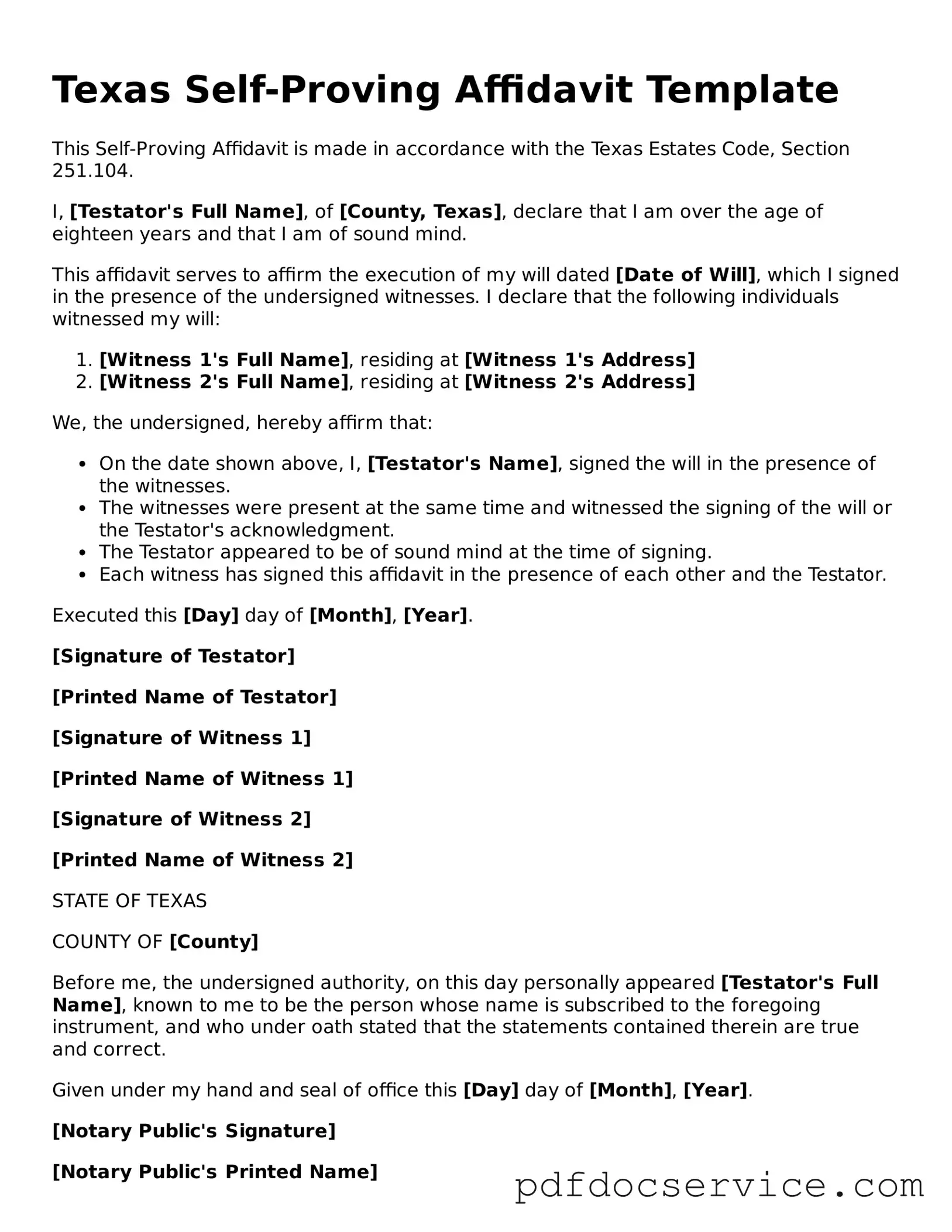Printable Self-Proving Affidavit Template for Texas
The Texas Self-Proving Affidavit form is a legal document that allows a will to be validated without the need for witnesses to testify in court. By including this form, testators can streamline the probate process, making it easier for their wishes to be honored after their passing. This simple yet effective tool provides peace of mind for individuals planning their estate.
Open Self-Proving Affidavit Editor

Printable Self-Proving Affidavit Template for Texas
Open Self-Proving Affidavit Editor

Open Self-Proving Affidavit Editor
or
Get Self-Proving Affidavit PDF
Finish the form now and be done
Finish Self-Proving Affidavit online using simple edit, save, and download steps.